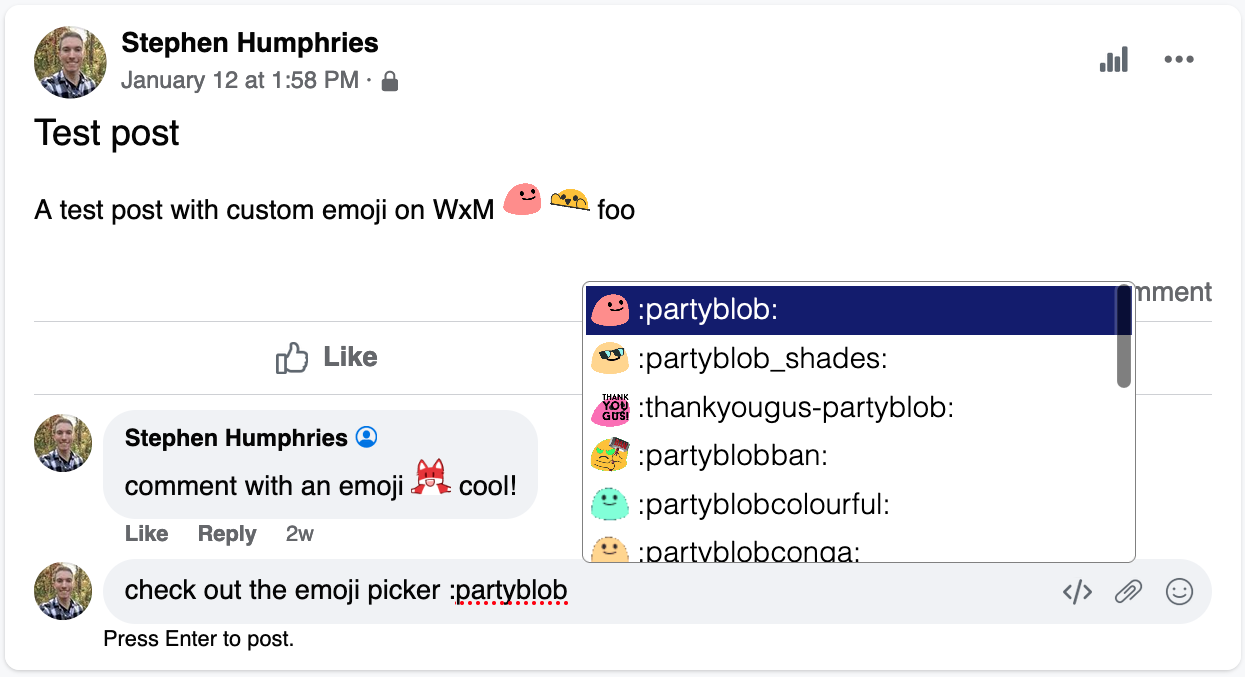According to CNN, the company I work for recently began “splitting internal communication between Slack and Workplace by Meta to be “super intentional” about how employees are receiving and sharing different kinds of information”. Commenting on the super-intentionality of information reception is above my pay grade, but one thing I can say is that Slack has built-in support for custom emoji (emojis? 🤷) and Workplace by Meta (for those unfamiliar: Facebook, but with your coworkers) does not.
Custom emoji add a certain je ne sais quoi to messages on Slack that can make conversations on other platforms feel shallow in comparison. The Unicode emoji built in to most modern operating systems are great, but sometimes a feeling can only be perfectly expressed with a custom 22×22-CSS-pixel image not defined by a committee. Every time I reach for a custom emoji while composing a text message, email, Messenger reply, Workplace post, GitHub issue, etc, only to remember that they’re not available, their absence makes me sad.
Slack runs in the browser; several of these other platforms run in the browser; I control the browser… so why not break Slack emoji out of their tab and unleash them on the rest of the Internet? I don’t do much web development, so this seemed like a fun excuse to play around with the WebExtensions APIs and see what I could build.
Introducing: the creatively named cross-compatible browser extension, slack-emoji-everywhere.
There’s more info in the linked GitHub repo’s readme, but, as a TL;DR, the extension uses a signed-in Slack workspace to automagically download emoji and injects them into non-Slack webpages in place of text :emoji: tokens. It uses the same undocumented (publicly, at least) API endpoints that Slack’s web client uses for looking up and searching emoji; it automatically authenticates these API requests using the logged-in users’s credentials; it does some caching to avoid looking up the same emoji every time it sees a token; and it optionally supports communicating with a custom, non-Slack emoji server that implements the same API.
I probably won’t officially release this extension publicly since I don’t want the support burden and I’m sure it violates Slack’s EULA, but it was a fun experiment.
